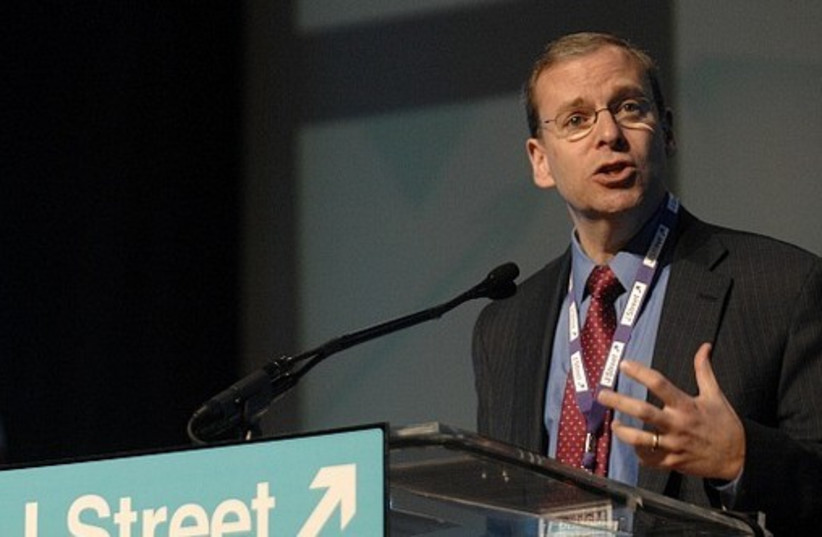Nothing is as heartwarming as the calls for unity. After a year in which the government split the public and engaged in incitement and division, following the national trauma, and in the midst of an ongoing war, obviously the calls for unity fall on willing public ears. It is therefore difficult to oppose “unity,” because who can stand against it? But in fact, these calls are dangerous, and to a large extent, manipulative because they seek to undermine the pluralism on which democratic societies are founded.
The call for unity expects us to divest ourselves of substantively divided opinions and our own individual values. Instead of clarifying the national values, we are expected to gather under the umbrella of “the national interest,” which means a continuation of the status quo and excludes anyone who wishes to challenge it, notably left-wingers and Arabs.
Unity is a paralyzing demand. It promotes the unity of opinion, or rather, uniformity. It is no wonder that “unity” is displayed mostly in regimes that do not allow freedom of opinion. In North Korea, everyone is “united,” whether they wish it or not.
In totalitarian regimes, the masses are subject to the positions of the leaders, and this leads to uniform thinking because whoever deviates will be punished. Fascism sanctified unity, which was centered around the nation and its leadership. In a democratic society, and especially in Israel, with its profound disagreements about its purpose and its future, the call to unity is, in fact, a call to toe the government line. This is not the political thinking that should inspire us.
Moreover, the calls that come from the Right side of the political map are essentially manipulative. They have no interest in the unity of attentiveness or willingness to act together in order to generate change, but rather in that unity to preserve the existing order and prevent criticism of the right-wing government that brought Israel to the brink.

THOSE WHO speak highly of unity will be the first to call for legal action against those who challenge the existing thinking; they might, for example, deem that calling to end the war is treason.
What conditions are associated with unity?
Unity will not prevent them from determining that expressing empathy toward the children of Gaza is enough to threaten a person’s livelihood, possibly even her freedom. Unity is conditional, and the condition is that everyone follows the course set by the government. Unity, but only if you are part of the religious and political majority; otherwise, one is prevented from expressing any other opinion.
The call for unity will always serve the existing government and will always undermine any ability to criticize and challenge it. We will always be told why, in the name of unity, we are not to demonstrate, argue, or call for elections – because they “undermine unity.” This seemingly innocent call serves the government and provides it with a tool that attempts to preserve its power.
By calling for unity, Prime Minister Benjamin Netanyahu strives to hold onto power, despite his responsibility for the events of October 7 and despite the lack of confidence of most of the public in him and his leadership. Consequently, he aims to silence those who wish to hold him, his policies, and his government publicly accountable.
On the battlefield, soldiers from almost all sectors and with diametrically opposed opinions are fighting together with one goal: to win. Their unified action aims to achieve a common goal. But try exchanging the military front for the civilian one, and the same unity that was invaluable on the battlefield turns into a harmful agent of paralysis.
A democratic society should be less uniform and less united. It is better off with courageous individuals who will challenge the existing order, who will promote as-yet untried ideas, and who will advance solutions that differ from government proposals. It is vital that such voices are not silenced.
In the past, the desire for unity has already harmed Israeli society. In the name of unity, Israel refrained from adopting a constitution and, as a result, did not set clear boundaries between branches of government or between majority rule and minority rights.
In the name of unity, religion and state were not separated, and we continue to witness the politicization of a field that should exist between people and their conscience, or their community. In its name, Israel did not advance toward a resolution of the Palestinian issue, and on October 7, we were rudely awakened from the delusion that the conflict is manageable.
We would do well to avoid reveling in the slogans of unity and seek out opposite views instead in the public arena – debate, ideological confrontation between assorted approaches, and decision. Only by doing this can our country repair itself and its ways. Maintaining what we already have will only reinforce those very problems that brought us to this low point.
The Jewish ethos of Tikkun Olam (repairing the world) requires critique and a challenge to conventions. Unity is, in fact, procrastination. It dictates paralysis and provides an excuse to avoid making decisions. If the State of Israel seeks life, it is duty-bound to make decisions about its future, both internally and with regard to the surrounding countries and peoples, first and foremost our Palestinian neighbors. The absence of a decision is, in fact, a decision in favor of the very circumstances that brought us to where we are.
Israel is facing decisions, that demand robust debate and choice, not a (fake) national embrace.
The writer is J Street Israel’s executive director.
